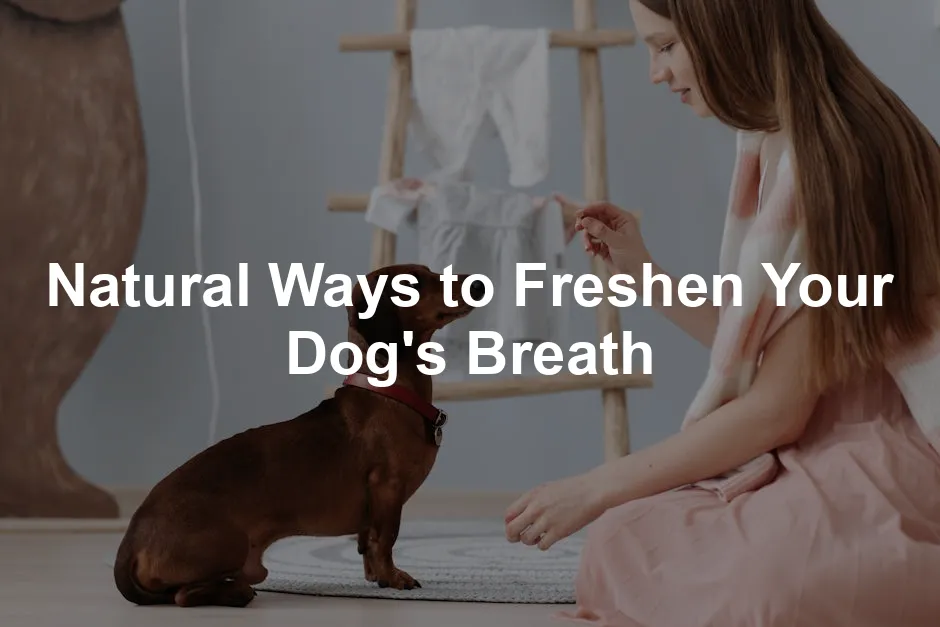Introduction
In the world of pet ownership, there’s nothing quite as heartwarming as the joyful wag of a dog’s tail or the gentle nuzzle of your furry friend. But when that nuzzle comes with a scent reminiscent of a week-old garbage can, it can certainly spoil those sweet moments. Enter bad breath, or halitosis, a common concern for dog owners that often signals underlying health issues.
Before you rush to grab commercial breath fresheners, let’s take a step back. This guide will introduce you to an array of natural remedies that can transform those puppy kisses from dreadful to delightful. We’ll cover easy, effective solutions that not only freshen breath but also promote the overall health of your canine companion.
So, how do we chase away that doggy breath? Think of fresh fruits, crunchy veggies, and aromatic herbs! You’ll also discover how simple dietary tweaks and homemade concoctions can work wonders. By embracing these natural methods, you’ll bring back the joy of snuggles without the unpleasant odor. Let’s get started on this journey to fresher breath for your beloved pet, ensuring every cuddle is a breath of fresh air!

Summary
Bad breath in dogs is more than just an unpleasant surprise; it can indicate deeper health issues, including dental disease or gastrointestinal problems. Understanding the root causes of canine halitosis is crucial for effectively tackling the problem. From poor oral hygiene to dietary choices, various factors contribute to your dog’s less-than-stellar breath.
Fortunately, there are numerous natural ways to freshen your dog’s breath without resorting to chemical-laden products. This article covers a comprehensive list of remedies, such as incorporating crunchy fruits and vegetables like carrots and apples into your dog’s diet, which can help scrub away plaque and stimulate saliva production. Additionally, ingredients like coconut oil, parsley, and apple cider vinegar can work wonders in combating bad breath while providing other health benefits.
To ensure your dog’s dental health, consider investing in a Pet Dental Care Kit. This handy set helps you maintain your dog’s oral hygiene, making it easier to brush away those pesky plaque build-ups that could be causing that dreadful doggy breath!
We’ll also touch upon the importance of regular dental care, including brushing your dog’s teeth and offering dental chews that promote oral health. Understanding the balance of bacteria in your dog’s mouth and gut is essential, and probiotics may also play a significant role in fresher breath.
By the end of this article, you’ll have a thorough understanding of both the causes of bad breath and a variety of natural remedies to keep your furry friend’s breath fresh. So, whether you’re preparing for playtime or cuddle sessions, you can feel confident in your ability to combat that infamous doggy breath!
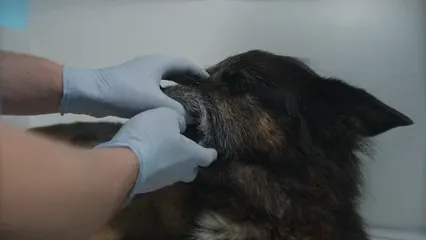
Natural Remedies to Freshen Your Dog’s Breath
Bad breath in dogs isn’t just a nuisance; it’s a signal for attention. Luckily, there are numerous natural ways to freshen your dog’s breath without resorting to chemical-laden products. Let’s dive into some effective remedies!
Diet Modifications
Crunchy Fruits and Vegetables
Incorporating crunchy fruits and vegetables into your dog’s diet can work wonders. Carrots and apples are not just tasty treats; they help scrub away plaque and stimulate saliva production. The crunchiness of these foods acts like a toothbrush, giving your pup’s teeth a little scrub while they munch. Just be sure to cut them into manageable pieces to avoid choking hazards. And for those perfect crunchy snacks, why not grab some Fresh Fruits for Dogs to keep your furry friend happy and healthy!
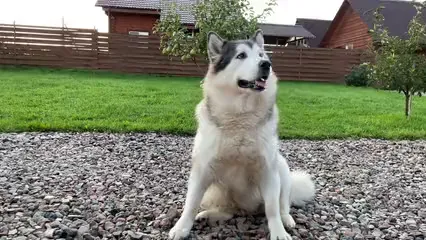
Celery and Cucumber
These refreshing veggies can also contribute to oral health. Their crunch helps remove food particles and bacteria, promoting a cleaner mouth. Plus, they’re low in calories, making them guilt-free snacks!
Herbal Remedies
Parsley and Mint
These herbs are like nature’s breath fresheners! Parsley is packed with chlorophyll, which helps neutralize odors. You can chop it up and sprinkle it over your dog’s food. Mint also acts as a natural deodorizer. A sprinkle of chopped mint can add a lovely touch to your dog’s meals while combating bad breath.
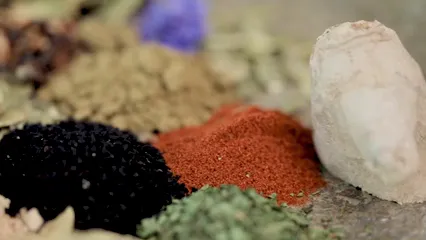
Homemade Solutions
Apple Cider Vinegar
This kitchen staple isn’t just great for salads; it’s also an excellent remedy for bad breath. Adding a teaspoon of apple cider vinegar to your dog’s water can help kill bacteria that cause odors. If your pup isn’t keen on the flavor, mix it into their food instead.
Lemon Juice
A few drops of lemon juice in your dog’s water can help, too! The acidity in lemon helps reduce mouth bacteria and gives a refreshing twist. Just be cautious; some dogs may not enjoy the taste.

Probiotic Options
Plain Yogurt
Incorporating plain, unsweetened yogurt into your dog’s diet can be beneficial. Probiotics found in yogurt help balance the bacteria in your dog’s mouth and gut. This can reduce the sulfur compounds that cause bad breath. Just make sure it doesn’t contain xylitol, as this sweetener is toxic to dogs.
Probiotic Supplements
If yogurt isn’t your dog’s thing, consider probiotic chews for dogs specifically designed for pets. They can help maintain a healthy gut flora, further aiding in fresher breath.

Regular Dental Care
Tooth Brushing
Brushing your dog’s teeth is crucial. Use a pet-specific toothbrush and toothpaste. Regular brushing can prevent plaque buildup and keep bad breath at bay. Aim for a routine that gets your pup used to the process—trust us, it’s worth it!
Dental Chews and Treats
Look for dog dental chews that promote oral health. These treats can help reduce plaque and freshen breath as your dog chews. Always check for products approved by the Veterinary Oral Health Council for effectiveness.
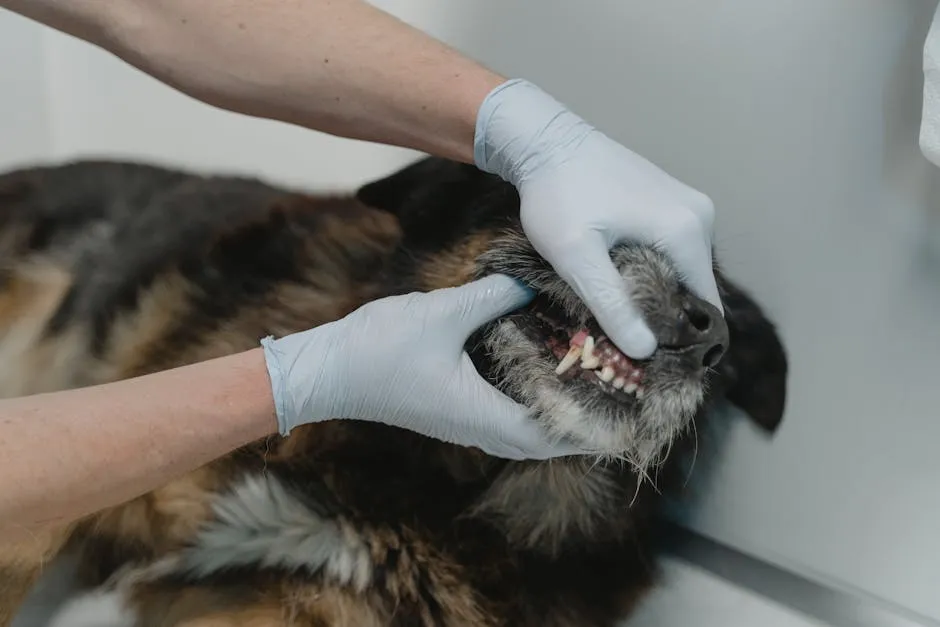
Hydration Matters
Don’t underestimate the power of fresh water! Ensure your dog always has access to clean water. Staying hydrated helps wash away food particles, reducing odor. Plus, regularly clean their water bowl to keep it bacteria-free. Consider getting a pet water fountain to encourage your pup to drink more water!
By incorporating these natural remedies into your dog’s routine, you’ll be well on your way to tackling that infamous doggy breath. So, whether you’re gearing up for playtime or cuddle sessions, you can feel confident knowing your furry friend’s breath is fresh and delightful!
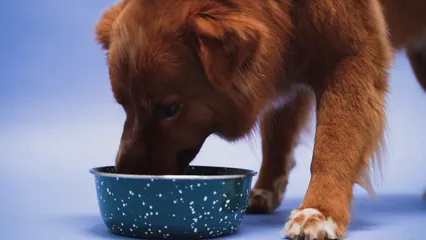
Understanding Bad Breath in Dogs
What is Halitosis?
Halitosis, or bad breath, is a common issue for dogs. It occurs when your furry friend’s breath has an unpleasant odor. Many dog owners might find it amusing at first. However, this can quickly turn into an embarrassing situation. Bad breath can indicate underlying health problems, so it’s essential to pay attention.
The prevalence of halitosis in dogs is higher than you might think, affecting a significant number of our canine companions. Factors contributing to halitosis can stem from various sources. These include bacteria, food particles, and even health conditions. Let’s break it down further to understand why it happens.
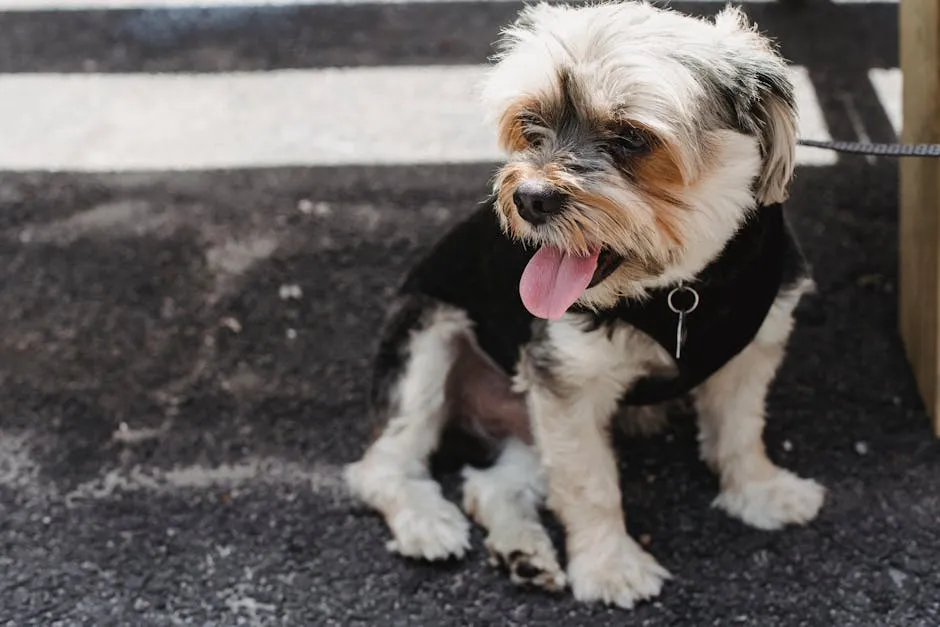
Common Causes of Bad Breath
- Poor Oral Hygiene: Just like humans, dogs can suffer from plaque buildup. This sticky film forms on teeth when bacteria combine with food particles. If left untreated, plaque can lead to periodontal disease. This condition not only causes foul breath but can also be painful for your dog. Regular brushing and dental chews can help combat this issue.
- Dietary Issues: What your dog eats can significantly impact their breath. Certain foods, especially those high in sugar or fat, can contribute to bad odors. For example, leftover food stuck in their teeth can rot, causing lingering smells. Always monitor their diet and choose high-quality food to help maintain fresh breath.
- Medical Conditions: Sometimes, bad breath is a sign of underlying health issues. Conditions like kidney disease or diabetes can lead to distinct odor changes. For instance, kidney problems can result in breath that smells like urine, while diabetes may cause a sweet, fruity scent. If your dog’s breath suddenly changes, it’s time to consult your veterinarian.
Understanding these causes is the first step in tackling bad breath. Regular dental care and attention to your dog’s diet can make a world of difference in their oral health and overall well-being.

Homemade Solutions
Mouthwash and Dental Rinses
Apple Cider Vinegar: Apple cider vinegar isn’t just for salad dressings! Mix a teaspoon into your dog’s water daily. This potent liquid helps eliminate the bacteria responsible for that awful smell. Just keep an eye on your pup’s reaction. If they turn their nose up, try mixing it into their food instead. Consistency is key here! Natural remedies for dog anxiety during thunderstorms
Lemon Juice: Who doesn’t love a zesty twist? A few drops of lemon juice in your dog’s water can be refreshing. The acidity helps reduce the bacteria that cause bad breath. Just be cautious—some dogs might not enjoy this flavor. If they seem hesitant, try adding it gradually.
Probiotic Options
Plain Yogurt: Not all yogurts are created equal! Plain, unsweetened yogurt is a fantastic treat. It’s packed with probiotics that promote a healthy gut. This can help balance the bacteria in your dog’s mouth too. Just a spoonful mixed into their food a few times a week can do wonders!
Probiotic Supplements: If yogurt isn’t your dog’s cup of tea, consider probiotic supplements specifically designed for pups. These little wonders can help maintain a healthy balance of bacteria in their gut. This balance is crucial for overall health and fresher breath. Always consult your vet for the best options available.
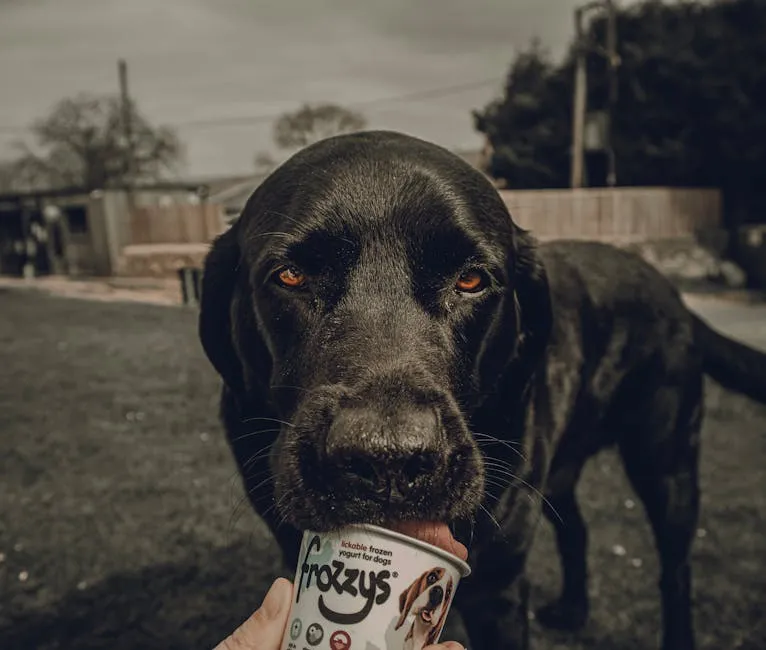
Regular Dental Care
Tooth Brushing
Brushing your dog’s teeth is essential. It might sound daunting, but it can be a fun bonding time! Use a pet-specific toothbrush and toothpaste—never human toothpaste, as it can be harmful. Aim for brushing at least a few times a week. Focus on the back teeth where plaque tends to build up. Regular brushing can make a huge difference in preventing bad breath and dental issues.
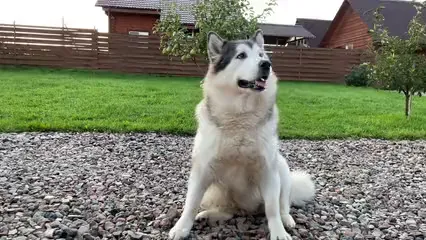
Dental Chews and Treats
When it comes to treats, not all are created equal. Look for dog dental chews specifically designed to improve oral health. These treats can help scrub away plaque and tartar while your dog chews. Brands that are approved by the Veterinary Oral Health Council are a safe bet. Give your pup one daily for a tasty way to promote fresh breath and a healthy smile!
Hydration Matters
Hydration is vital for your dog’s health and breath. Always provide fresh, clean water. Dehydration can lead to dry mouth, making bad breath worse. Regularly clean their water bowl to prevent bacteria buildup. A well-hydrated dog is a happy dog, and fresh water can help wash away food particles and bacteria. Make sure your pup has access to fresh water throughout the day for optimal breath health!
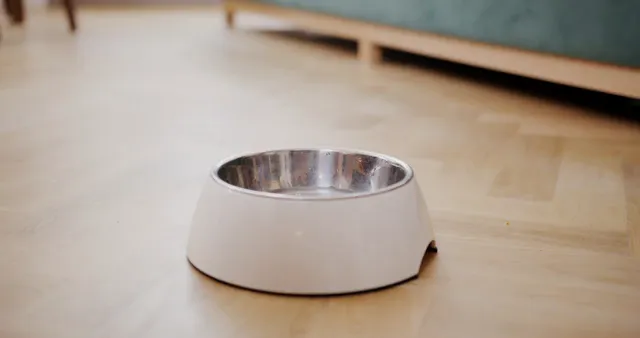
Preventive Measures for Maintaining Fresh Breath
Keeping your dog’s breath fresh is a job that requires diligence and a bit of creativity. Regular vet check-ups, monitoring diet, and establishing a brushing routine are essential in this quest. Let’s break down these preventive measures.
Regular vet check-ups and dental cleanings are non-negotiable. Your veterinarian can spot potential dental issues before they turn into stinky problems. Tartar buildup and gum disease are common culprits of bad breath. A professional cleaning can effectively remove plaque and tartar, leaving your dog’s mouth much fresher. Aim for yearly visits, or more frequently if your pup has existing dental concerns.
Next up, let’s talk about diet. What goes into your dog’s mouth plays a significant role in how their breath smells. Avoid cheap dog food loaded with fillers and choose high-quality options instead. You can also monitor your dog’s snacks. Healthy treats like healthy dog treats like carrots and apples not only satisfy your pup’s cravings but also help clean their teeth. Crunchy veggies are nature’s toothbrushes! Just chop them into bite-sized pieces.

Now, let’s tackle the brushing routine. Just like humans, dogs benefit from regular tooth brushing. Establish a routine where you brush your dog’s teeth at least a few times a week. Use toothpaste specifically designed for dogs, as human toothpaste can be harmful. Make the process enjoyable! Start slow, letting your dog sniff the toothbrush and toothpaste. Gradually work up to brushing their teeth. It’s a bonding experience that can lead to healthier gums and fresher breath.
To sum it up, preventive measures require commitment but yield fantastic results. Regular vet visits, a healthy diet, and consistent brushing can keep your dog’s breath fresh and delightful. After all, who wouldn’t want to enjoy those slobbery kisses without holding their breath?
Conclusion
In summary, freshening your dog’s breath can be accomplished through a combination of dietary changes, natural remedies, and proper dental care. Regular attention to your dog’s oral hygiene can prevent the embarrassment of bad breath while promoting overall health. Remember, if bad breath persists despite your best efforts, it might be time for a vet visit to rule out any serious health issues. By taking these proactive steps, you can enjoy all the slobbery kisses and cuddles without the unpleasant odor. Your furry friend deserves fresh breath just as much as they deserve your love!
FAQs
Why does my dog have bad breath?
Bad breath in dogs can arise from various causes. The most common ones include poor oral hygiene, leading to plaque buildup and gum disease. Additionally, certain dietary choices can contribute to foul odors. Lastly, underlying medical conditions such as kidney disease or diabetes can also be responsible.
Can I use human toothpaste for brushing my dog’s teeth?
No, you should avoid using human toothpaste for your dog. Human toothpaste often contains ingredients like xylitol, which is toxic to dogs. Instead, choose a toothpaste specifically formulated for dogs, which is safe and effective in cleaning their teeth.
How often should I brush my dog’s teeth?
Aim to brush your dog’s teeth at least two to three times a week. Daily brushing is ideal, as it helps prevent plaque buildup. Getting your dog used to the process early on makes it easier and more enjoyable for both of you.
Are there any foods I should avoid giving my dog to prevent bad breath?
Yes, certain foods can contribute to bad breath. Avoid giving your dog sugary treats, fatty foods, and anything that may stick to their teeth. Foods like garlic and onion should also be avoided, as they can be harmful to dogs.
When should I consult a veterinarian about my dog’s bad breath?
If your dog’s bad breath persists despite your efforts to address it, it’s time to consult your veterinarian. Other signs to watch for include inflamed gums, difficulty eating, or changes in appetite. These may indicate underlying health issues that require professional attention.
Please let us know what you think about our content by leaving a comment down below!
Thank you for reading till here 🙂
All images from Pexels

